- Regulatory Status
- RUO
- Other Names
- Total TGF-β1 Pre-coated ELISA Kit
- Ave. Rating
- Submit a Review
- Product Citations
- publications
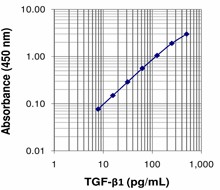
| Cat # | Size | Price | Quantity Check Availability | Save | ||
|---|---|---|---|---|---|---|
| 436707 | 1 Pre-coated Plate | 398€ | ||||
Transforming growth factor beta 1 (TGF-β1) is a member of the transforming growth factor beta superfamily of cytokines. TGF- β1 precursor contains 390 amino acids with an N-terminal signal peptide of 29 amino acids required for secretion from a cell, a 249 amino acids pro-region ( latency associated peptide or LAP), and a 112 amino acids C-terminal region that becomes the active TGF- β1 upon activation.
Both LAP and TGF- β1 exist as homodimers in circulation, but the disulfide linked homodimers of LAP and TGF- β1 remain non-covalently associated, forming the small latent TGFβ1 complex (SLC, 100 kD). The large latent TGF- β1 Complex (LLC, 235 – 260 kD) contains a third component, the latent TGF- ß binding protein (LTBP), which is linked to LAP by a single disulfide bond. The LTBP does not confer latency, but for efficient secretion of the complex to extracellular sites. Free active TGF- β1 can be released (activated) by many factors including enzymes and low or high pH.
TGF- β1 is nearly 100% conserved across mammalian species. It has diverse biological functions in multiple cellular processes such as regulating proliferation and differentiation of various cell types. TGF- β1 is also an important immunoregulatory cytokine, which is involved in the maintenance of self-tolerance, Th17 differentiation, and T cell homeostasis etc.
Kit Contents
- Kit Contents
-
- Anti-TGF-β1 Pre-coated 96-well Strip Microplate
- TGF-β1 Dectection Antibody
- TGF-β1 Standard
- Avidin-HRP D
- Assay Buffer C
- Wash Buffer (20X)
- Substrate Solution F
- Sample Diluent
- Acidification Solution
- Neutralization Solution
- Stop Solution
- Plate Sealers
Product Details
- Verified Reactivity
- Human, Mouse, Rat, Non-Human Primate, Pig, Cow, Rabbit
- Application
-
ELISA
- Additional Product Notes
-
View more applications data for this product in our Scientific Poster Library.
-
Application References
(PubMed link indicates BioLegend citation) - Product Citations
-
- Sensitivity
- 3.5 pg/mL
- Standard Range
- 7.8-500 pg/mL
- Materials Not Included
-
- Microplate reader able to measure absorbance at 450 nm
- Adjustable pipettes to measure volumes ranging from 1 µL to 1,000 µL
- Deionized water
- Wash bottle or automated microplate washer
- Log-Log graph paper or software for data analysis
- Tubes to prepare standard dilutions
- Timer
- Plate Shaker
- Polypropylene vials
Antigen Details
- Cell Sources
- Many cell types, highly expressed on activated Tregs and platelets
- Biology Area
- Apoptosis/Tumor Suppressors/Cell Death, Cell Biology, Immunology, Neuroinflammation, Neuroscience, Signal Transduction
- Molecular Family
- Cytokines/Chemokines, Growth Factors
- Gene ID
- 21803 View all products for this Gene ID
- UniProt
- View information about TGF-beta1 on UniProt.org
Related FAQs
- In your LEGEND MAX™ ELISA Kits, there is a step that calls for washing the plates before adding sample. What is the purpose of this step?
-
We typically use a stabilizer for pre-coated plates. The additional washing step is designed to remove these components before you start the assay. If you do not perform the washing, the effect on assay performance is negligible.
- I have multiple LEGEND MAX™ ELISA kits that I want to run simultaneously. Can I use the same wash buffer for all the kits?
-
The wash buffer provided in all our LEGEND MAX™ kits is the same and the part numbers on the wash buffer bottles in these kits should be identical. For ELISA MAX™ Deluxe and ELISA MAX™ Standard Sets, we provide a recipe for the wash buffer on each kit’s technical data sheet. This recipe is the same for all ELISA MAX™ sets.
- For some of your ELISA kits, why do my serum samples require dilution with assay buffer?
-
In some cases, dilution with assay buffer is required to minimize the matrix difference between the samples and the standards to achieve better accuracy.
 Login / Register
Login / Register 






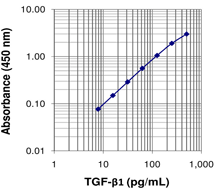
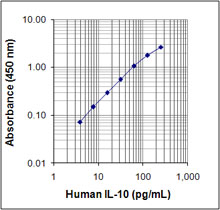
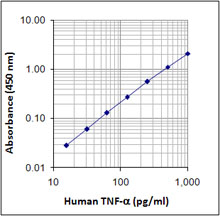
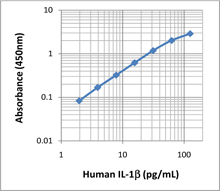



Follow Us